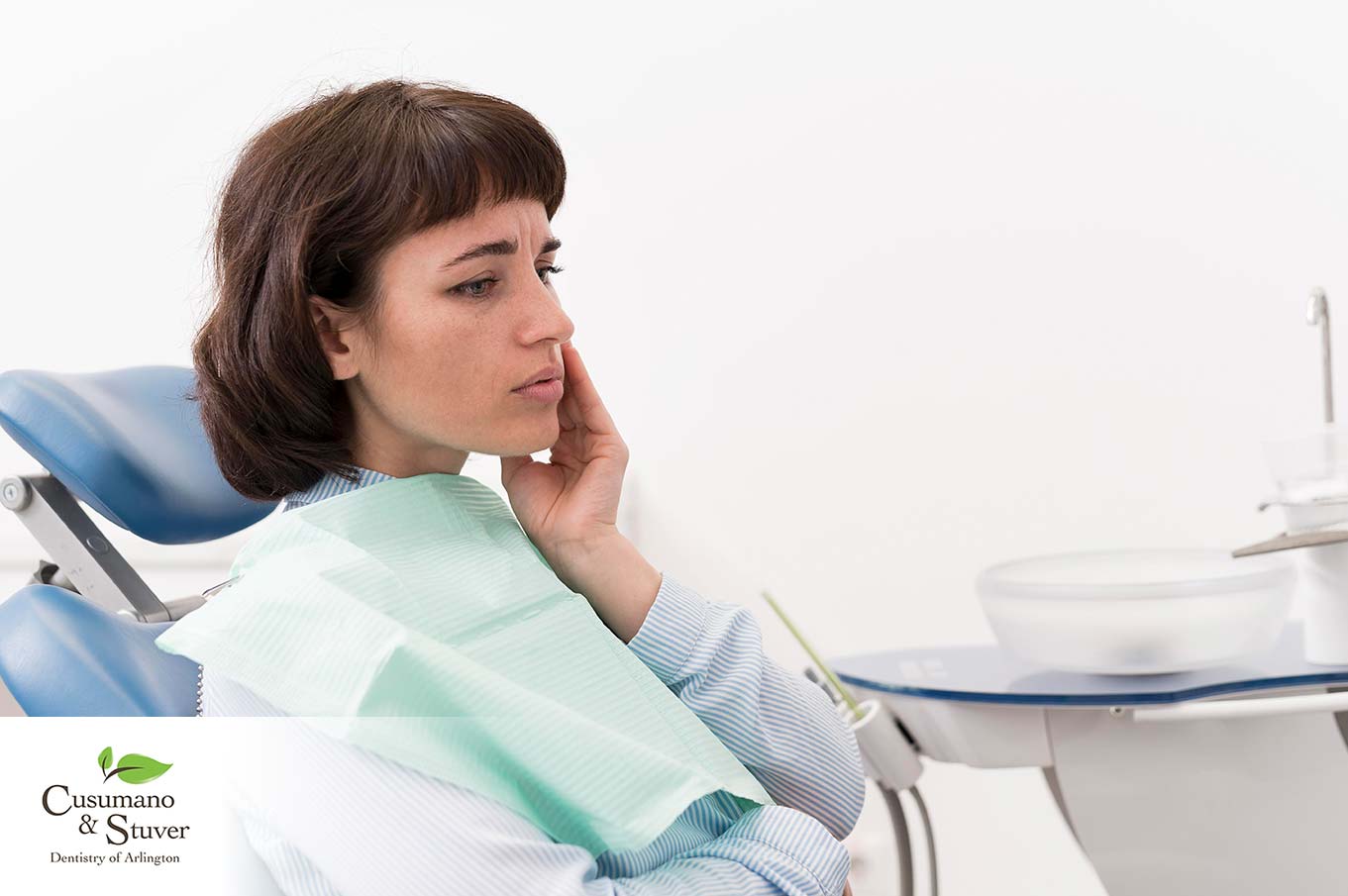
You roll out of bed, go to the bathroom, and grab your toothbrush. At that moment, you feel pain in your teeth. This may be how you start most days. You are not the only one who feels this way. Many people talk about morning tooth pain. The good thing is, we can usually fix morning tooth pain after we find out what causes it.
Let’s take a look at some of the main reasons your teeth might feel sore in the morning. We will also talk about what you can do to wake up without pain.
Bruxism is More Common Than You Think
Here is something that might surprise you. You may use your jaw muscles more at night than you do all day. Many people have bruxism, which means they grind or clench their teeth. Most of them are unaware that they are doing it.
When you feel stressed or worried, or even when you are focused on something in your dreams, your jaw muscles can work much harder than normal. You end up clenching or grinding your teeth and jaw as you sleep. But this is not the sort of exercise you want, because it does not make your jaw muscles stronger. It can harm instead. Grinding or clenching wears down the enamel on your teeth. It also strains your jaw muscles and can leave you with pain or soreness in the morning.
The signs that show you grind your teeth at night can be hard to notice. You may feel that your teeth are more sensitive when you have hot or cold drinks. Your jaw might feel sore or tired when you wake up in the morning. Sometimes, people who sleep nearby will hear the grinding sounds before you are even aware of them.
Your TMJ
Your temporomandibular joint links your jawbone to your skull. This joint is quite complex. It has to move in several ways. Your temporomandibular joint glides, hinges, and spins whenever you talk, eat, or yawn. If this joint becomes swollen or does not function properly, it can cause pain. This pain can spread through your mouth and face.
TMJ disorders often get worse when you sleep. This is because people can clench their jaw at night without knowing or sleep in ways that put stress on the jaw joint. When this happens, the discomfort may feel like it comes from your teeth, but the real problem is usually in the jaw joint.
Sinus Pressure
Your maxillary sinuses are just above your upper back teeth. When these sinuses are blocked or swollen, they can make you feel pain in your teeth. A lot of people do not know that the sinus cavities and dental pain are connected in this way. This is why tooth pain can sometimes be caused by problems in your sinuses, not in the cavities of your teeth themselves. If you feel discomfort in your upper back teeth, it may be from your sinuses and not only your dental cavities.
When you sleep flat for many hours, your sinus congestion can get worse. This can put pressure on the roots of your upper teeth. You may wake up thinking you have toothaches in more than one tooth. But really, your sinuses are making this happen. This type of pain often hits several top teeth at the same time. You might also feel pressure in your face or have nasal congestion.
Gum Disease
Periodontal disease often shows itself most in the morning. This happens because when you sleep and lie flat, blood moves in a different way. Any inflammation in your gums can become easier to feel at that time. If you have gum disease, you may get up with gums that feel tender and swollen. Your teeth can feel sore or sensitive because of this.
Morning is usually the time when people first spot bleeding as they brush, or feel the swelling in their gums the most. Your oral health does not stop working at night. Swelling and inflammation in the gums can feel stronger when you get up after lying down for many hours.
Tooth Decay
Sometimes the most straightforward answer is the right one. If you have dental problems like cavities or tooth decay, this pain does not stop just because you are asleep. When you lie flat, it can make more blood go to your head. This may intensify any dental pain when you wake up in the morning.
If you breathe through your mouth when you sleep, your mouth can get drier during the night. Saliva helps protect your teeth. When you have less saliva, this natural defense is not as strong. This can make any decay or sensitivity feel worse when you wake up in the morning.

What You Can Do Starting Tonight
The good news is that you don’t have to live with morning tooth pain every day. There are some things you can do to help with tooth pain in the morning.
Pay attention to your stress levels. Stress can often cause clenching or grinding at night. To help with this, try to find good ways to relax before you go to bed. You could set up a calming bedtime routine. You might also practice some relaxation methods. These steps can help you feel better and may stop you from clenching at night.
- Think about how you sleep. If you sleep on your side or your stomach and this puts pressure on your jaw, try to change your sleep position. A new position can help take the stress off your temporomandibular joint.
- Stay hydrated and think about using a humidifier. When you keep your mouth and sinuses from getting too dry, you can lower the discomfort you feel in the morning from many things.
- Practice gentle jaw exercises. Do some simple stretches before you go to bed. Try to open your mouth wide and do it slowly. Then move your jaw gently from side to side. This can help relax the jaw muscles and make them feel less tight.
Professional Solutions That Really Work
If doing self-care at home is not enough, there are also more help options. A few professional treatments can give you much more relief:
Custom night guards work very well for people who grind or clench their teeth. They are better than store-bought ones. A night guard from your dentist fits your teeth properly. It gives good protection and feels comfortable. You can use it every night without any trouble.
Professional cleaning and gum treatment can help with periodontal disease. This may be causing the discomfort you feel in the morning.
Finding and treating cavities can take away one of the main reasons people feel pain in their teeth. This is a simple and effective way to deal with dental problems.
When to Seek Professional Help
While it is okay to feel some mild tooth sensitivity in the morning once in a while, there are times when you need to see a dental professional. If your morning tooth pain happens all the time, is severe, or you notice swelling, do not wait. You should get treatment for your tooth pain right away.
If you feel symptoms that could show you have TMJ, like your jaw makes clicking or popping sounds when you open your mouth, or you feel pain that spreads to your ear or neck, you should get checked by a professional. A visit like this can help you find the best way to treat the problem.

Your Path to Pain-Free Mornings
Morning tooth pain does not have to be something you deal with every day. This pain can come from bruxism, TMJ problems, sinus issues, gum disease, or tooth decay. There are good treatments for all of these things. The main thing is to know what is causing your discomfort so we can help with it the right way.
Remember that your oral health is a big part of your overall health. If you feel tooth pain or other discomfort in the morning, it is not only about avoiding the pain. It is also about keeping your mouth healthy for a long time. When you have persistent morning tooth pain, do not wait to make an appointment. We can work with you to find out what the issue is and help you feel good when you start your day.


